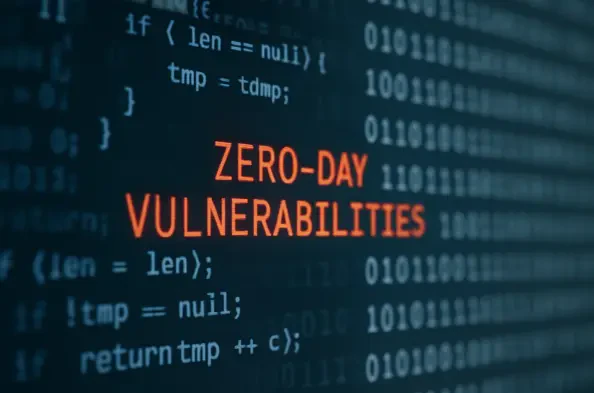In a startling revelation for businesses relying on secure file-sharing solutions, multiple zero-day vulnerabilities in Gladinet’s Triofox platform have been actively exploited this year, exposing critical weaknesses in a system trusted by medium and large enterprises across various sectors. Triofox, designed to facilitate remote access and file sharing without the need for VPNs, has become a prime target for sophisticated threat actors. Reports from leading cybersecurity firms highlight a series of attacks leveraging flaws like improper access control and deserialization issues, allowing attackers to gain unauthorized access and deploy malicious tools. These incidents underscore a troubling pattern of recurring security gaps in Gladinet’s offerings, raising urgent questions about the safety of sensitive data in business environments. As organizations scramble to mitigate risks, the broader implications for cybersecurity in file-sharing platforms come into sharp focus, demanding immediate attention and robust action to prevent further compromises.
Unveiling the Exploits in Triofox
A significant zero-day vulnerability, identified as CVE-2025-12480, has emerged as a critical flaw in Triofox, characterized by improper access control that permits unauthenticated attackers to reach the configuration and setup pages. Threat analysts from Mandiant noted that as early as August 24 this year, a group labeled UNC6485 exploited this weakness through an HTTP Host header attack. By manipulating the Host value to “localhost,” attackers bypassed security measures, initiated the setup process, and established a new administrative account named “Cluster Admin.” This account enabled the upload and execution of malicious files using the platform’s built-in antivirus feature. The payload, disguised as a legitimate Zoho Unified Endpoint Management System installer, facilitated the deployment of remote access tools such as Zoho Assist and AnyDesk, paving the way for deeper system infiltration and control by unauthorized entities.
Beyond initial access, the exploitation of CVE-2025-12480 revealed a range of post-compromise activities that amplified the threat. Attackers engaged in enumerating SMB sessions to map out network resources, gathered detailed user information, and attempted to change passwords to secure persistent access. Further escalation involved adding compromised accounts to local and domain administrator groups, significantly enhancing their control over affected systems. This multi-stage attack strategy not only compromised individual Triofox instances but also posed risks to broader network environments. The use of legitimate software for malicious purposes demonstrated a calculated effort to evade detection, highlighting the sophistication of the threat actors involved. Such tactics emphasize the urgent need for organizations to scrutinize administrative privileges and monitor for anomalous activities that could indicate a breach in progress.
A Pattern of Persistent Vulnerabilities
The exploitation of CVE-2025-12480 is not an isolated incident but part of a disturbing trend affecting Gladinet’s platforms, including both Triofox and CentreStack, a file-sharing solution tailored for managed service providers. Earlier this year, in March, another zero-day flaw, CVE-2025-30406, involving a deserialization issue, was actively targeted, with successful attacks documented by Huntress by April. Although a patch was released in Triofox version 16.4.10317.56372, attackers quickly adapted, shifting focus to the newly identified CVE-2025-12480. Additionally, by October, a third vulnerability, CVE-2025-11371, an unauthenticated Local File Inclusion flaw, surfaced and was exploited in the wild. Both of these later flaws were addressed in an update to version 16.10.10408.56683 on October 14, illustrating a relentless cycle of exploitation and response that challenges the security posture of Gladinet’s solutions.
This recurring pattern of zero-day exploits points to systemic security challenges within Gladinet’s platforms that go beyond individual patches or updates. Huntress analysts have noted striking similarities in attacker tactics across these incidents, suggesting a possible connection to a single threat group also linked to exploits of unrelated vulnerabilities in other software during the same period. The consistent targeting of file-sharing platforms reflects their value as entry points for broader network compromise, especially in business contexts where sensitive data is routinely exchanged. The inability to anticipate and prevent these zero-days before exploitation raises concerns about the initial design and testing phases of these solutions. For organizations relying on Triofox and CentreStack, these incidents serve as a stark reminder of the importance of proactive security measures, including regular audits and staying ahead of emerging threat intelligence.
Strengthening Defenses Against Future Threats
In response to the ongoing exploitation of vulnerabilities in Gladinet’s platforms, cybersecurity experts from Mandiant and Huntress have outlined critical steps for affected organizations to mitigate risks. Immediate actions include upgrading to the latest software versions to ensure patches for known flaws are applied without delay. Auditing administrative accounts to detect unauthorized additions, such as the “Cluster Admin” profile, is essential, alongside ensuring the antivirus engine is not being misused to execute unauthorized scripts. Monitoring for indicators of compromise and unusual outbound SSH traffic can help identify ongoing or attempted breaches. These measures aim to close existing gaps and prevent further unauthorized access, providing a layered defense against sophisticated attacks that exploit zero-day vulnerabilities in business-critical systems.
Looking ahead, the repeated targeting of Triofox and CentreStack underscores the necessity for a fundamental overhaul of security practices within Gladinet’s development and deployment processes. Beyond reactive patching, there is a pressing need for enhanced initial security measures, rigorous testing, and faster response mechanisms to emerging threats. Organizations using these platforms must adopt a proactive stance, integrating continuous monitoring and threat intelligence into their cybersecurity strategies. By staying informed about evolving attack methodologies and implementing robust access controls, businesses can better safeguard sensitive data. The lessons learned from these exploits highlight a crucial turning point, urging both vendors and users to prioritize security resilience in an increasingly hostile digital landscape, ensuring that past vulnerabilities do not pave the way for future breaches.






